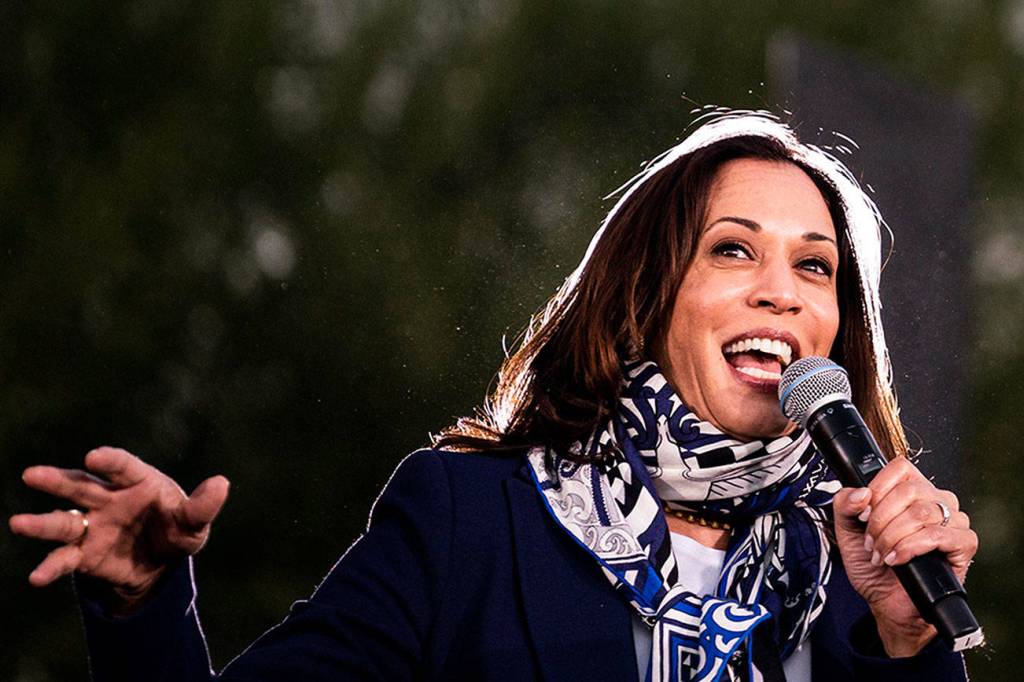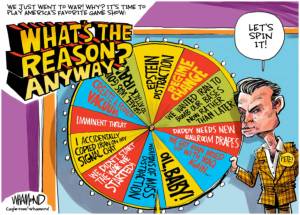Comment: Harris knows what no vice president has ever known
Published 1:30 am Saturday, October 31, 2020


By Monica Hesse / The Washington Post
In the week before the country potentially elects its first female vice president, I’ve been trying to write a sweeping essay about progress and trailblazers and glass-breakers and what it all means. But what I keep thinking about is this: At some point in Kamala Harris’s life someone has instructed her to carry her keys like a weapon when she walks to her car. Someone has said: Get them out of your purse even before you leave the grocery store. Arrange them between your fingers, and if someone attacks you, aim for the face.
How do I know this? Because this is Woman 101. It’s the first page of the instruction manual teaching us how we’ll need to navigate the world. I have never met a woman who hasn’t heard this piece of advice. And I doubt that in 232 years of male leadership there’s ever been a sitting president or vice president who has.
I keep thinking about how, at some point in Kamala Harris’ life, she has painstakingly reviewed her office wardrobe with the understanding that the difference between “slut” and “feminazi” is a few inches of worsted-wool hemline. At some point, she has approached a stranger in a public bathroom because the Tampax machine is broken again, and she has said, I’m so sorry, but do you have, and then she didn’t have to finish the question because women in bathrooms know that there is only one end to that question.
At some point in Kamala Harris’s life, a friend of mine offered, “someone has probably told her that she says ‘I’m so sorry’ too much.”
At some point, “she has had to think expansively about motherhood,” another friend told me.
Whether her birth control would be refilled on time. Whether children would curtail her career, officially or slyly. What unpaid maternity leave and paid day care would do to her financial stability in a country where Black women are paid an average of 63 percent of what white men are paid. What pregnancy would do to her body in a country in which Black women’s maternal mortality rate is more than three times higher than it is for white women.
At many points in her life, she has been called a bitch.
There is something profoundly moving about the fact that Kamala Harris has walked through the world as a woman. That she has thought, talked, purchased, exercised, sought medical care, sought justice, laughed and bitten her tongue as a woman.
That she has thought about what laws would have made her feel safer, and what policies would have made her life easier.
This isn’t because men can’t be compassionate and sympathetic to women’s issues. Of course they can. But in the entire history of the United States we have only had presidents and vice presidents for whom the experiences of women are known and understood secondhand if at all. And there is a difference between being sympathetic to women’s issues and knowing that, if a condom breaks, you are the one who is going to be walking into a medical clinic through a gantlet of protesters screaming that you are a murderer.
Over the summer, New Zealand started a program to make free sanitary products available in schools; a way to address the estimated 95,000 girls who were missing class due to “period poverty,” according to the prime minister. It’s a little-discussed problem that now has a practical solution, and I can’t help but think that the fact that the prime minister is named Jacinda Ardern, not Jacob Ardern, has at least something to do with that.
In Finland, the prime minister has made a point of working to close the country’s gender-pay gap and supporting legislation to give new parents — fathers as well as mothers — equal and abundant paid parental leave. The prime minister is Sanna Marin, a 34-year-old new mother who has Instagrammed pictures of herself breastfeeding.
At some point in the lives of these two women, they realized that they did not want to live in a world in which mothers are considered parents and fathers are considered occasional babysitters. They did not want the cost of an $8 box of tampons, multiplied by 12 or 13 periods a year, multiplied by 30 or 40 years of menstruation, to add up to the difference between whether a girl could go to school. How many male people in power know what a box of tampons cost?
When Sally Ride went to space, NASA’s male engineers suggested she would need 100 tampons for a seven-day trip. If you have ever menstruated, you know why this is hilarious. If you have not, then perhaps you can see why having female people in positions of power can be useful.
We are informed by our experiences. Our experiences sometimes allow us to fill in the gaps that others have missed.
At some point in Kamala Harris’s life, in January, she may stand on a stage in front of the U.S. Capitol, and she may take the oath of office.
But I can’t stop thinking of all the other points in her life she’ll carry with her.
How someone must have told her, once, to use her keys as a weapon in a parking lot. How something like that shapes you. How it hopefully makes you into a person who never lets anyone walk in the dark alone.
Monica Hesse is a columnist for The Washington Post’s Style section, who frequently writes about gender and its impact on society. She’s the author of several novels, most recently, “They Went Left.”




